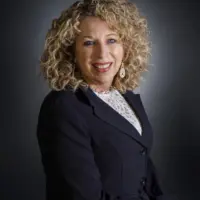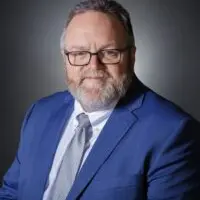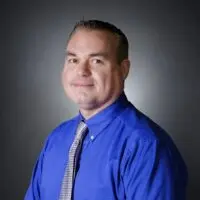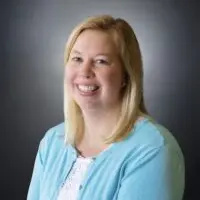About The Brook Hospital – KMI
The Brook Hospitals have delivered quality substance use and mental health care for at least 40 years in Kentucky. The Brook KMI is one of their two outstanding facilities in Louisville. This 98-bed facility offers a full continuum of psychiatric care from inpatient to outpatient services. The facility is also home to their substance use transitional living program for men in the early stage of recovery from addiction.
This residential recovery program is housed in a modern 3300-square-foot home within the KMI campus at 8521 LaGrange Road, Louisville. The facility boasts twelve semi-private rooms fully equipped to optimize comfort. The calm and beautiful setting just makes it the ideal space to continue your recovery journey.
Building a Sober Future Through the 12 Steps
This program aims to equip you with skills for independent and substance-free living in the real world. You’ll benefit from 24/7 guidance and support from certified counselors. You’ll work together with these experts to create a personalized care plan tailored to your unique needs following a thorough evaluation. They use the Recovery Dynamics model of care to guide clients through the 12-step practices. This helps you develop self-awareness, accountability and lifelong recovery skills.
You’ll attend educational classes to gain insight into the disease concept of addiction, the 12 Steps of AA/NA and the process of recovery. You’ll also participate in group therapy to build coping skills that foster relapse prevention. They also offer recovery-focused meditation and reflection groups where you can learn to manage stress and strengthen your commitment to sobriety. Individual and family therapy is provided as needed. The program emphasizes family involvement and allows your loved ones to visit once a week. They even offer educational groups for family members and significant others.
You’re required to attend an offsite AA/NA meeting. Not only that, you’re expected to find a sponsor within the AA fellowship and maintain regular contact as you navigate sobriety. Most importantly, you’re encouraged to take charge of your healing by embracing the program’s philosophy, education and self-motivation.
The length of stay ranges from four to five weeks or more depending on your unique clinical needs. They may offer referrals or link you to community resources that support your lasting healing as you reenter the community. These resources may include housing, job opportunities or medical care.
Facility Overview
Latest Reviews
Rehab Score
Gallery


Accepted Insurance
Other Forms of Payment
Medicare is a federal program that provides health insurance for those 65 and older. It also serves people under 65 with chronic and disabling health challenges. To use Medicare for addiction treatment you need to find a program that accepts Medicare and is in network with your plan. Out of pocket costs and preauthorization requirements vary, so always check with your provider.
Medicaid is a state based program that helps lower-income individuals and families pay for healthcare. Medicaid covers addiction treatment so those enrolled can use their coverage to pay for rehab. When a program accepts Medicaid the client often pays very little or nothing out of their own pocket.
Military members, veterans, and eligible dependents have access to specific insurance programs that help them get the care they need. TRICARE and VA insurance can help you access low cost or no cost addiction and mental health treatment. Programs that accept military insurance often have targeted treatment focused on the unique challenges military members, veterans, and their families face.
Addiction Treatments
Levels of Care
Outpatient Programs (OP) are for those seeking mental rehab or drug rehab, but who also stay at home every night. The main difference between outpatient treatment (OP) and intensive outpatient treatment (IOP) lies in the amount of hours the patient spends at the facility. Most of the time an outpatient program is designed for someone who has completed an inpatient stay and is looking to continue their growth in recovery. Outpatient is not meant to be the starting point, it is commonly referred to as aftercare.
The inpatient programs are designed to provide the highest level of direct patient care that is possible, which includes physical, social, spiritual, medical and psychotherapeutic treatment interventions. Residential treatment programs are those that offer housing and meals in addition to substance abuse treatment. Rehab facilities that offer residential treatment allow patients to focus solely on recovery, in an environment totally separate from their lives.
Intensive Outpatient Programs (IOP) are for those who want or need a very structured treatment program but who also wish to live at home and continue with certain responsibilities (such as work or school). IOP substance abuse treatment programs vary in duration and intensity, and certain outpatient rehab centers will offer individualized treatment programs.
12-step programs are addiction recovery models based on Alcoholics Anonymous (AA). A number of substance abuse programs (including some drug and alcohol rehab centers) use the 12 steps as a basis for treatment. At the Brook Hospital they utilize a medical and 12-step model of treatment in our substance abuse program for teens. All programs are individually structured to focus on breaking the denial of substance abuse and beginning the process of recovery.
The Brook Hospitals recognize that recovery and healing is a lifelong process and therefore discharge planning begins upon admission. The treatment team works closely with each patient to set realistic goals for continuing care following treatment and makes available information or referral for further services as necessary. Following completion of the inpatient program, an appropriate referral is made for the patient to continue treatment in the least restrictive level of care possible (like partial hospitalization, intensive outpatient, outpatient, aftercare program). The level of care recommended is determined by the individual needs of the patient.
Drug and alcohol addiction often takes a heavy toll on one's body. Over time, a physical dependence can develop, meaning the body physiologically needs the substance to function. Detox is the process of removing drugs and/or alcohol from the body, a process that can be lethal if mismanaged. Medical detox is done by licensed medical professionals who monitor vital signs and keep you safe, healthy, and as comfortable as possible as you go through detox and withdrawal.
Treatments
The goal of treatment for alcoholism is abstinence. Those with poor social support, poor motivation, or psychiatric disorders tend to relapse within a few years of treatment. For these people, success is measured by longer periods of abstinence, reduced use of alcohol, better health, and improved social functioning. Recovery and Maintenance are usually based on 12 step programs and AA meetings.
Drug rehab in Kentucky often starts with detox, then includes inpatient or outpatient treatment, and continues with aftercare support. Specific methods used during each of these phases varies, but often include individual and group counseling, medication, and recreational therapies.
Many of those suffering from addiction also suffer from mental or emotional illnesses like schizophrenia, bipolar disorder, depression, or anxiety disorders. Rehab and other substance abuse facilities treating those with a dual diagnosis or co-occurring disorder administer psychiatric treatment to address the person's mental health issue in addition to drug and alcohol rehabilitation.
A combined mental health and substance abuse rehab has the staff and resources available to handle individuals with both mental health and substance abuse issues. It can be challenging to determine where a specific symptom stems from (a mental health issue or an issue related to substance abuse), so mental health and substance abuse professionals are helpful in detangling symptoms and keeping treatment on track.
Opioid rehabs specialize in supporting those recovering from opioid addiction. They treat those suffering from addiction to illegal opioids like heroin, as well as prescription drugs like oxycodone. These centers typically combine both physical as well as mental and emotional support to help stop addiction. Physical support often includes medical detox and subsequent medical support (including medication), and mental support includes in-depth therapy to address the underlying causes of addiction.
Programs
Adult rehab programs include therapies tailored to each client's specific needs, goals, and recovery progress. They are tailored to the specific challenges adult clients may face, including family and work pressures and commitments. From inpatient and residential treatment to various levels of outpatient services, there are many options available. Some facilities also help adults work through co-occurring conditions, like anxiety, that can accompany addiction.
The Brook Hospitals provide treatment for men and women who have served or are currently serving in the United States Armed Forces. Their services include a military liaison and a dedicated Treatment Plan, physicians with military background, staff available 24 hours a day for quick assessment and admission, and treatment for PTSD, depression, substance abuse and anxiety disorders.
Young adulthood can be an exciting, yet difficult, time of transition. Individuals in their late teens to mid-20s face unique stressors related to school, jobs, families, and social circles, which can lead to a rise in substance use. Rehab centers with dedicated young adult programs will include activities and amenities that cater to this age group, with an emphasis on specialized counseling, peer socialization, and ongoing aftercare.
Clinical Services
Whether a marriage or other committed relationship, an intimate partnership is one of the most important aspects of a person's life. Drug and alcohol addiction affects both members of a couple in deep and meaningful ways, as does rehab and recovery. Couples therapy and other couples-focused treatment programs are significant parts of exploring triggers of addiction, as well as learning how to build healthy patterns to support ongoing sobriety.
Eating disorders include anorexia, bulimia, binge eating, and dysfunctional eating patterns. Many psychologists and other mental health professionals consider eating disorders to be food addictions, meaning food is being used in an addictive way (similar to drug or alcohol addiction). Certain substance abuse treatment programs will have treatment for eating disorders as one of the services offered. An eating disorder may also present as a co-occuring disorder or dual diagnosis alongside drug and alcohol addiction.
Electroconvulsive Therapy (ECT) is recognized by the National Institute of Mental Health as a successful treatment option for severe depression, bipolar disorder, and schizophrenia. A patient usually receives an ECT treatment two to three times a week for a total of six to twelve treatments. ECT is an exceptionally effective medical treatment, helping 90% of patients who receive it. Most patients remain well for many months after a treatment course; however, monthly or bimonthly maintenance treatments are also an option to maintain disease remission.
Experiential therapy is a form of therapy in which clients are encouraged to surface and work through subconscious issues by engaging in real-time experiences. Experiential therapy departs from traditional talk therapy by involving the body, and having clients engage in activities, movements, and physical and emotional expression. This can involve role-play or using props (which can include other people). Experiential therapy can help people process trauma, memories, and emotion quickly, deeply, and in a lasting fashion, leading to substantial and impactful healing.
Research clearly demonstrates that recovery is far more successful and sustainable when loved ones like family members participate in rehab and substance abuse treatment. Genetic factors may be at play when it comes to drug and alcohol addiction, as well as mental health issues. Family dynamics often play a critical role in addiction triggers, and if properly educated, family members can be a strong source of support when it comes to rehabilitation. At the Brook Hospital family members are also invited to participate in treatment team and family sessions.
Group therapy is any therapeutic work that happens in a group (not one-on-one). There are a number of different group therapy modalities, including support groups, experiential therapy, psycho-education, and more. Group therapy involves treatment as well as processing interaction between group members.
In individual therapy, a patient meets one-on-one with a trained psychologist or counselor. Therapy is a pivotal part of effective substance abuse treatment, as it often covers root causes of addiction, including challenges faced by the patient in their social, family, and work/school life.
Trauma therapy addresses traumatic incidents from a client's past that are likely affecting their present-day experience. Trauma is often one of the primary triggers and potential causes of addiction, and can stem from child sexual abuse, domestic violence, having a parent with a mental illness, losing one or both parents at a young age, teenage or adult sexual assault, or any number of other factors. The purpose of trauma therapy is to allow a patient to process trauma and move through and past it, with the help of trained and compassionate mental health professionals.
Amenities
-
Residential Setting
-
Private Setting
Staff & Accreditations
Staff

Sherri Flood
CEO

Mike Huth
CFO

John Bisig
CNO

Jennifer Faust
Intake Director
Accreditations

The Joint Commission, formerly known as JCAHO, is a nonprofit organization that accredits rehab organizations and programs. Founded in 1951, the Joint Commision's mission is to improve the quality of patient care and demonstrating the quality of patient care.
Joint Commission Accreditation: Yes
Contact Information
8521 LaGrange Road
Louisville, KY 40242



